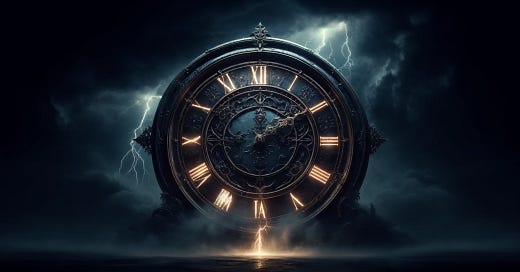Why Your Time Here May Be Shorter Than You Think.
How to deal with the risk of rare events that might take your life at a younger age.
You are playing a game of high-stakes poker with your life.
You probably just don’t know it.
The truth is there is only one certainty.
That over a long enough time horizon all survival drops to zero.
Of that, we can be certain.
And pretty much only that.
For most other aspects of our lives, we have to look at things probabilistically.
Heart disease is t…
Keep reading with a 7-day free trial
Subscribe to Dr Paddy Barrett to keep reading this post and get 7 days of free access to the full post archives.



